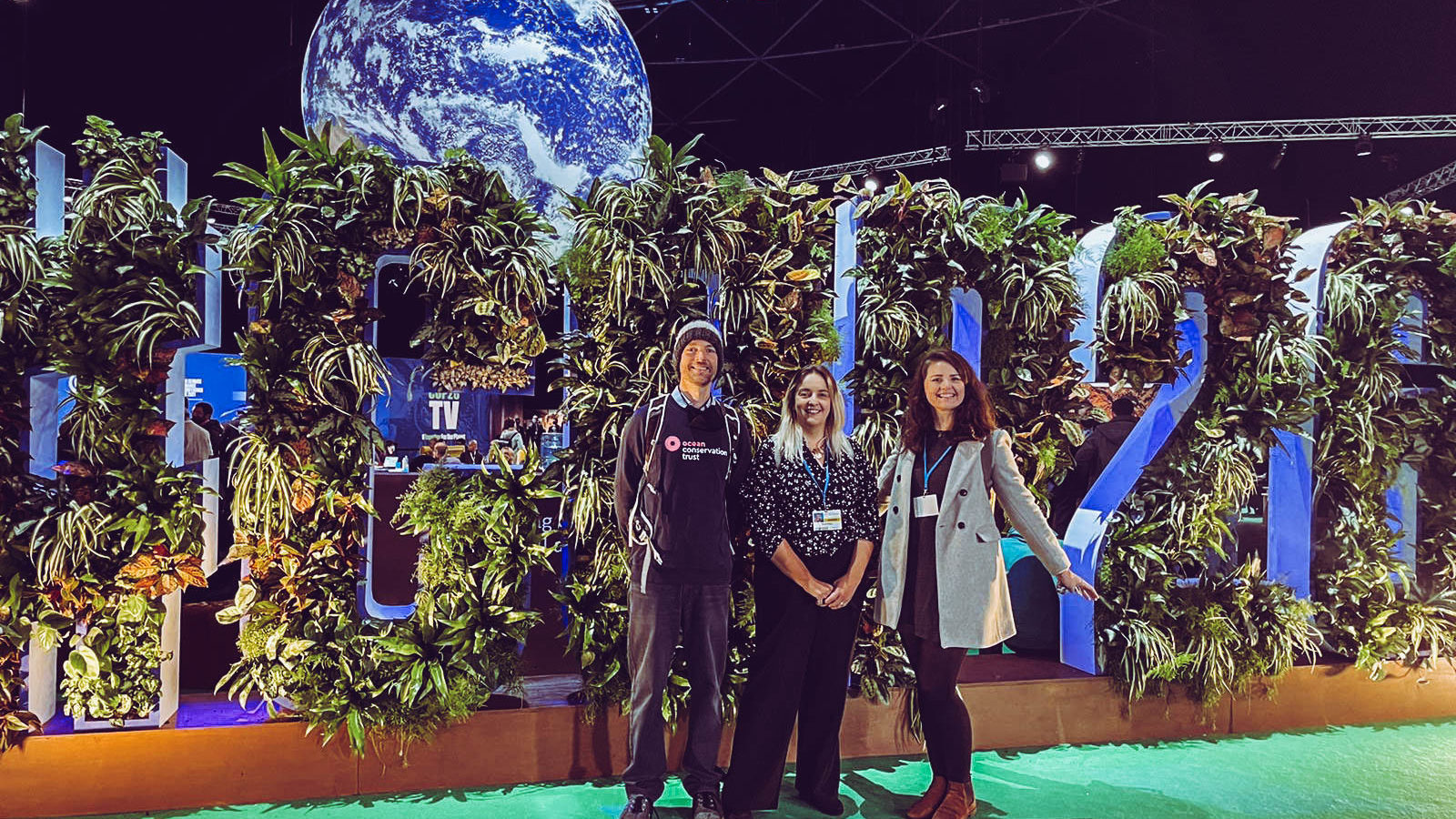After our first day at COP26, Helen (Public Engagement Manager), Stu (Schools Engagement Manager) and I (Nicola, Head of Ocean Advocacy and Engagement) have been reflecting on how the Ocean needs to be a key part of the negotiations and the conference as a whole.
Would the world leaders gathered be aware of the inextricable link between human health and Ocean health? Are they making decisions based on the fact that the Ocean has already mitigated many of the impacts of the changing climate already, due to its dominance in the water and carbon cycles? Do they understand that financing renewable Ocean energy and Ocean nature-based solutions for climate change are vital?
Do they recognise that it doesn’t matter where you live – whether you’re near a beach, in the countryside, or in the middle of a big city – the Ocean still has a profound effect on your life. When you turn on your tap in the morning to brush your teeth, the water you use, as well as the algae in your toothpaste, comes from the Ocean. When you watch TV or use the internet, some of the materials used in the hardware have come from or via the Ocean. When you buy your favourite foods at the supermarket, many of those have been shipped via the Ocean.

In other words – are our world leaders Ocean Literate?
The Ocean plays a key role in regulating the natural cycles that keep our planet balanced, which means it is deeply affected by a warming atmosphere and the absorption of excess CO2 produced by our activities.
A stable climate is essential for a stable Ocean (and vice versa). If there isn’t significant agreement on concrete action over the coming days, the consequences for the Ocean and thus humans are dire.
When our global Ocean can function efficiently it can:
- Absorb or reflect large amounts of solar energy.
- Create predictable annual weather patterns by pushing the warmth it absorbs from the sun, along with water vapour (which makes clouds and precipitation) all around the globe.
- Absorb and ‘lock away’ CO2.
During the COP26 negotiations, it is key that the Ocean is part of the conversation – an unhealthy Ocean means unhealthy people. We must reduce global greenhouse gas emissions and we must unsure that global temperatures rise no more than the already predicted 1.5oC.
We hope to see joined up working, where our human activities are in a state of net zero – when the amount of greenhouse gas being produced, is balanced by the amount removed from the atmosphere naturally.
Ocean literacy can save the planet!
Do you think yourself as Ocean Literate?
By understanding your influence on the Ocean and its influence on you, you can be part of our #thinkocean movement to protect our Ocean. If every individual on this planet thought about the Ocean in their day to day lives and made choices that have a positive influence on the Ocean’s health, together we can ensure we are creating a future we want and need.
Not sure how you can help?
Our #thinkocean challenge has been specially designed to help you find your starting place in the race to save the Ocean. We truly are tied to the Ocean. All life on earth started in the Ocean. We must take care of it, because it is us.


